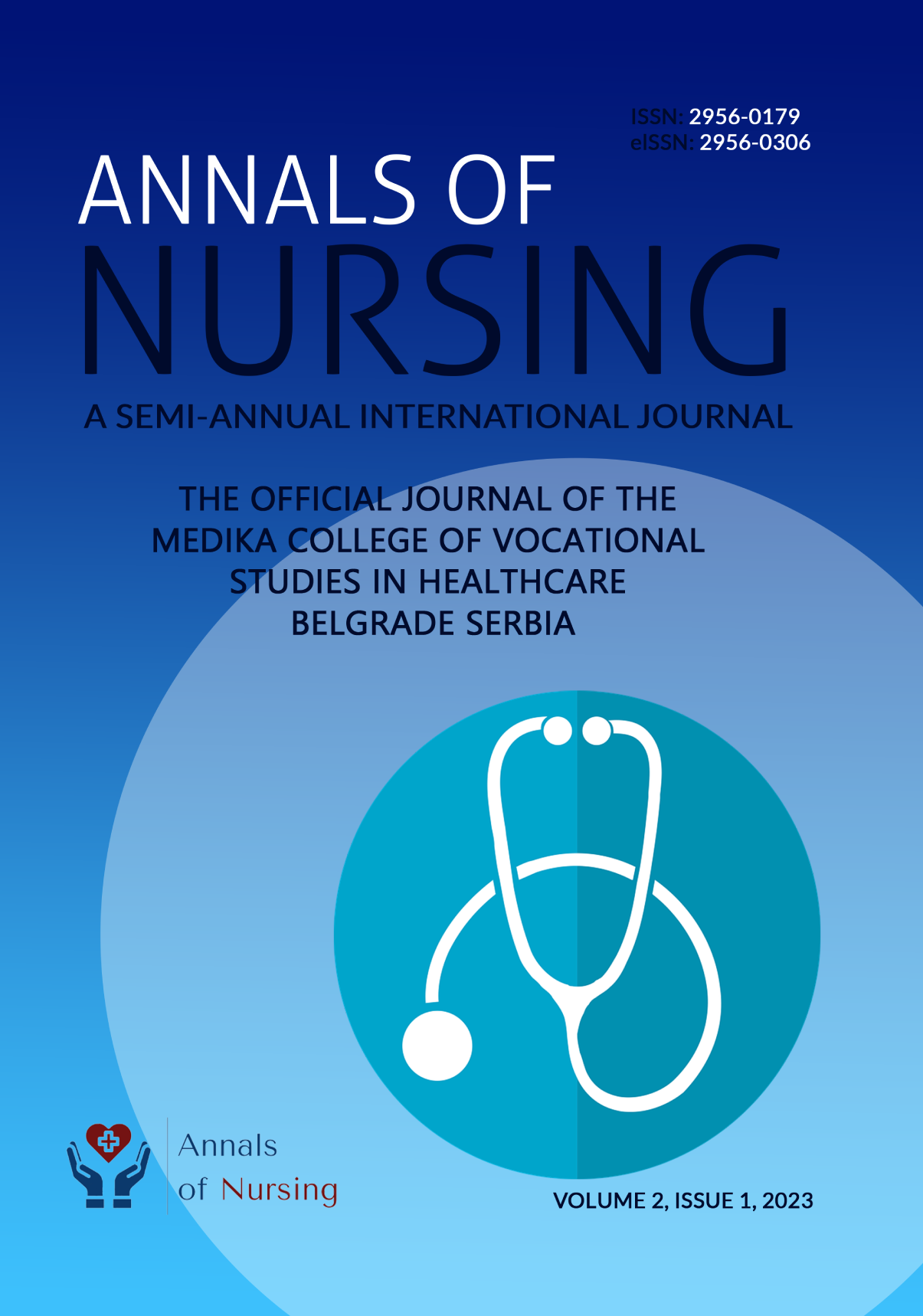VIEW ON HEALTH CARE SYSTEM OF THE REPUBLIC OF SERBIA
Abstract
Background and aim:
From the viewpoint of the theoretical description of the healthcare system management, it is significant to identify and evaluate the effects of the organization, financing, and rationalization of the healthcare system of the Republic of Serbia. In its practical application, it is related to the strategic decision-making process for improving functions and developing necessary and proper changes within the same system. It also relates to healthcare human resources, as well as proper client satisfaction and education.
Conclusion
The health care system has characteristics that distinguish it from other areas. The globalization of the market and the growing needs of society require the healthcare system to be organized in such a way as to meet all the demands of patients and to guarantee their satisfaction. User satisfaction is ensured by achieving the highest possible quality in disease diagnosis, treatment, and patient care at acceptable prices and with as little risk of errors and adverse effects concerning patients as possible.
References
Janković Dragica, Zdravstveno osiguranje kao faktor troškova zdravstvene zaštite, Škola biznisa, broj 4/2001, UDC 364.32, str. 71-75
http://www.rzzo.rs, pristup ostvaren 30.9.2023.
http://zdravstveno-osiguranje.rs/dobrovoljno-zdravstveno-osiguranje/
Veselinović, P., Reforma javnog sektora kao ključna determinanta uspešnosti tranzicije privrede Republike Srbije, Ekonomski horizonti, 16(2), 141-159.
Gajić-Stevanović, M., Teodorović, N., Vukša, A, Živković, S., Uloga i osobine
menadžera u strateškoj transformaciji zdravstvenog menadžmenta. Serbian Dental
Journal/Stomatološki glasnik Srbije, 55(4).
SZO, S. z. (1977). Rezolucija SZO o Globalnoj Strategiji "Zdravlje za sve do 2000.". SZO.
Zakon o zdravstvenoj zaštiti (Sl. glasnik RS br. 25/19)
Mitrović-Gavrilović, 2013: 145-158: Mitrović Milan, Gavrilović Ana, Organizacija i menadžment u zdravstvenom sistemu Srbije, FBIM Transactions Vol.1 No.2 pp. 145 – 158
Alberto, 2019: 17-18, Alberto Irina, Modeliranje poslovnih procesa u zdravstvu, završni rad, University of Pula / Sveučilište Jurja Dobrile Pula, 17-18.
Bradley, 2015: 411-415, Bradley, Elizabeth, Taylor Lauren, & Cuellar Carlos, A Leverage Point for Health Systems Strengthening in Global Health, Management Matters, International Journal of Health Policy and Management, 2015, Vol.4 No.7, pp. 411–415
Dašić, 2018: 44, Dašić Dejan, Menadžment zdravstvenog i medicinskog turizma – mogući pravci razvoja u Republici Srbiji, Ekonomski signali, Broj13, sveska , 41-56
Radivojević, V., Neki aspekti razvoja zdravstvenog sistema Srbije i Japana, Naučne publikacije državnog univerziteta u Novom Pazaru, Oktobar 2020, V3, Broj 2, 152-165
Milutinović, O., Anđelić, S., Organizacioni efekti ulaska zdravstvenih ustanova u sistem zdravstvenog turizma, Institut za srpsku kulturu Priština – Leposavić, Baština, Vol. 33, Broj 60, Jun, 2023., pp. 217-236
Gajić-Stevanović, M., Dimitrijević, S., Zdravstveni sistem i potrošnja u Srbiji od 2004 do 2008
Gavrilović, A., Trmčić, S., Zdravstveno osiguranje u Srbiji – finansijski održiv sistem, International Scientific Conference MANAGEMENT 2012, Mladenovac
Copyright (c) 2024 Slavica Anđelić, Vojin Vidanović, Olivera Milutinović,

This work is licensed under a Creative Commons Attribution-ShareAlike 4.0 International License.
Copyright
Authors who publish with ANNALS OF NURSING agree to the following terms:
1. The authors maintain the copyright for their work and provide the journal the right of first publication. Simultaneously, the work is licensed under a Creative Commons Attribution License (CC BY-SA 4.0), allowing others to share and acknowledge the authorship and initial publication in this journal.
2. Authors have the option to engage in separate contractual agreements for the non-exclusive distribution of the journal's published version of the work. This may include posting it to an institutional repository or publishing it in a book, with proper acknowledgment of its initial publication in this journal.
3. Furthermore, authors are both permitted and encouraged to share their work online (e.g., in institutional repositories or on their website) before and during the submission process. This practice can facilitate productive exchanges and contribute to earlier and increased citation of the published work.

